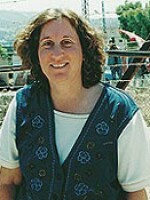JOHN YDSTIE, host:
This is MORNING EDITION from NPR News. I'm John Ydstie, sitting in for Steve Inskeep.
RENEE MONTAGNE, host:
And I'm Renee Montagne.
Secretary of State Condoleezza Rice was in Jericho and then on to Jerusalem today. She was holding separate talks with Palestinian and Israeli leaders. She's trying to get some movement in the long-stalled Middle East peace process. She spoke again about the need for a two-state solution and said the Palestinians need what she described as a viable and contiguous state.
We go now to NPR's Linda Gradstein in Jerusalem. And Linda, the secretary of state's first meeting was, as we said, in Jericho, the West Bank city of Jericho, with Palestinian leader Mahmoud Abbas, who's been trying for weeks now to put together a unity government. And where does that stand?
LINDA GRADSTEIN: Well, Abbas made a fairly dramatic announcement. He said that the talks on a unity government are at a dead end. He said that for eight or nine months the Palestinian people have not gotten salaries because of an international aid boycott put in place when Hamas took over the government. He said, But unfortunately we have not reached an agreement.
Now after he said this, Hamas Prime Minister Ismail Haniya, who's in Cairo, said, No, no, the talks are continuing. Palestinian officials, at least who I spoke to in Jericho, said, No, they're not. What happens next is not really clear. Abbas could dissolve the parliament. He could call for new elections. He could call for a referendum. But it certainly put Palestinian politics in turmoil with this announcement at a joint news conference with Secretary Rice, the fact also that he made this announcement in so public a way.
MONTAGNE: And Secretary Rice is now in Jerusalem meeting with Israeli Prime Minister Ehud Olmert. Earlier this week, he urged that negotiations with the Palestinians be resumed. Are there any signs of movement on that?
GRADSTEIN: Condoleezza Rice is discussing issues of Palestinian freedom of movement, both goods getting in and out of Gaza, which has been very difficult, despite an agreement that she brokered about a year ago, and it hasn't really been kept, about commerce between Gaza and Israel. So that's one thing. She's also going to ask him to lift a lot of the roadblocks that are inside the West Bank that are impeding Palestinian travel.
But there was a sense that there's perhaps a new opportunity now. She praised Olmert's speech as something new and significant, as did Palestinian leader Abbas. Olmert talked about a contiguous Palestinian state, a viable Palestinian state. It's the first time that he has made these kind of statements.
MONTAGNE: And then there was a ceasefire announced in Gaza last weekend. Is that holding?
GRADSTEIN: It's fragile, but it's still holding. There has been isolated rocket fire from Gaza into Israel since the ceasefire was announced. Israel has not responded to that rocket fire. And Olmert had said he want to give the ceasefire a chance to work. Secretary Rice said that she would like to see the ceasefire extended to the West Bank. Abbas said that's something he would like to see as well. So that's also going to be on the agenda with Olmert, whether or not they can extend the ceasefire as a first step to renewing peace negotiations.
MONTAGNE: One of the issues causing friction between Israel and the Palestinians is an Israeli soldier still missing after being captured last summer. There has been talk for months of a prisoner swap. What's the latest on that?
GRADSTEIN: The negotiations are going on and there are sort of conflicting reports, with some reports saying they're very close to an agreement and some saying they're still very far away. The deal would be that this soldier, Gilad Shalit, would be freed in exchange for hundreds of Palestinian prisoners. Hamas originally demanded 1400; Israel offered 400. So now they're sort of negotiating in the middle. It's also a question of exactly who will be released.
One if the things that Olmert said in his speech is that it will be Palestinians serving long-term, which means that it will be Palestinians who had been involved in killing Israelis; that's also something new. Until now, Israel has refused to release them. But it does not seem that this is imminent at all. There's still negotiations going on.
There are, by the way, two other Israeli soldiers who were captured on the northern border by Hezbollah soldiers this summer. The Red Cross this week said they still have not received any signs of life from those two soldiers. But Gilad Shalit, the soldier in Gaza, is still believed to be alive.
MONTAGNE: NPR's Linda Gradstein, speaking from Jerusalem. Thank you.
GRADSTEIN: Thank you. Transcript provided by NPR, Copyright NPR.







